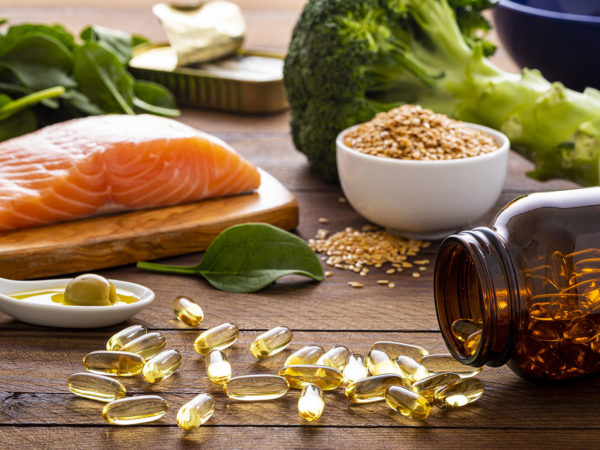Treating Attention Deficit Hyperactivity Disorder in Adults?
I have been diagnosed with adult Attention Deficit Hyperactivity Disorder (ADHD). I do not want to take prescription drugs. I was wondering if there is a natural approach to treat it.
Andrew Weil, M.D. | September 13, 2022

The adult version of attention deficit hyperactivity disorder (ADHD) often occurs in people who had ADHD as children, whether or not it was diagnosed at the time. An estimated 60 percent of children with the disorder will continue to have symptoms as adults. In adults, the key symptoms of the disorder – inattention, impulsivity, and hyperactivity – may be less apparent but may manifest as problems in relationships or work, such as mood disorders, substance abuse, or as various psychological difficulties. (For information on the characteristics of ADHD in adults, see Children and Adults with Attention-Deficit/Hyperactivity Disorder (CHADD).)
ADHD in adults may be treated by counseling along with the same type of stimulant medication prescribed for children. Alternatively, certain antidepressants may be recommended. Conventional treatment also includes teaching behavior skills (such as list-making, day planners, filing systems, and other organizational methods). In addition, you might consider joining a support group.
I don’t know of any reliable natural treatment for ADHD, but the same complementary therapies recommended for children may help adults, too. These include taking supplemental omega-3 fatty acids. Higher doses of omega-3s have been used in treating other mood disorders such as depression and bipolar disorder. I would recommend using a product with high DHA content, which is concentrated in the brain, and start out with 2-4 grams daily. I also suggest taking a high-quality multivitamin and a good probiotic, a product that contains “friendly” bacteria that can stabilize the digestive tract. I recommend brands such as Culturelle, which contain Lactobacillus GG. Follow dosage directions on the label.
You also might try eliminating – one at a time – dairy products, wheat, corn, yeast, soy, citrus, eggs, chocolate, peanuts, artificial colors and preservatives. A 2015 review of studies found modest evidence that elimination diets and fish oil supplementation could reduce ADHD symptoms in children. A randomized, longer-term study comparing a healthy diet with an elimination diet (the TRACE study) is now underway in the Netherlands, and I look forward to seeing results from that. Biofeedback and homeopathy are also worth exploring as natural approaches.
Andrew Weil, M.D.
Sources
Anbarasan D, Kitchin M, Adler LA. Screening for Adult ADHD. Curr Psychiatry Rep. 2020 Oct 23;22(12):72. doi: 10.1007/s11920-020-01194-9. PMID: 33095375. https://pubmed.ncbi.nlm.nih.gov/33095375/
Heilskov Rytter MJ, Andersen LB, Houmann T, Bilenberg N, Hvolby A, Mølgaard C, Michaelsen KF, Lauritzen L. Diet in the treatment of ADHD in children – a systematic review of the literature. Nord J Psychiatry. 2015 Jan;69(1):1-18. doi: 10.3109/08039488.2014.921933. Epub 2014 Jun 16. PMID: 24934907. https://pubmed.ncbi.nlm.nih.gov/24934907/
Bosch A, Bierens M, de Wit AG, Ly V, van der Velde J, de Boer H, van Beek G, Appelman D, Visser S, Bos L, van der Meer J, Kamphuis N, Draaisma JMT, Donders R, van de Loo-Neus GHH, Hoekstra PJ, Bottelier M, Arias-Vasquez A, Klip H, Buitelaar JK, van den Berg SW, Rommelse NN. A two arm randomized controlled trial comparing the short and long term effects of an elimination diet and a healthy diet in children with ADHD (TRACE study). Rationale, study design and methods. BMC Psychiatry. 2020 May 27;20(1):262. doi: 10.1186/s12888-020-02576-2. PMID: 32460725; PMCID: PMC7251686. https://pubmed.ncbi.nlm.nih.gov/32460725/
Originally posted June 2004. Updated September 2022.












